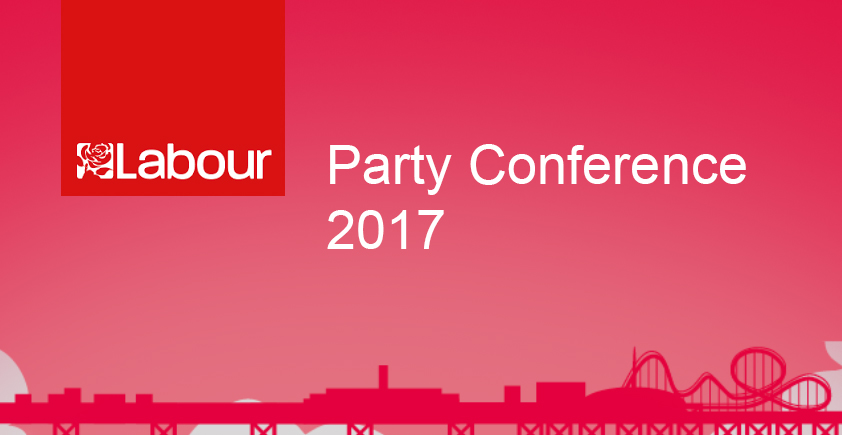Luther’s take on Labour Party Conference 2017

We returned to Brighton, an almost sea of red (we’ll gloss over the delegate spotted wearing a Caroline Lucas t shirt) for this year’s Labour conference.
Unlike last year’s rainy affair in Liverpool, we once again saw queues for entry to the secure zone, but a return to the glory days of 1997 this was not. Lobbyists and business representatives were few and far between, replaced with first time delegates buoyed by Labour’s election “win” in June. In this era of post-truth politics, details like actually winning the election didn’t matter at all. John McDonnell and Diane Abbott dropped the ‘Shadow’ from their job titles when introducing themselves at fringe meetings – because, let’s face it, they are the real Government.
For the first time since the halcyon days of Ed Miliband, this conference wasn’t immediately preceded by a leadership contest. This meant that the fringe was better organised – most events had a Shadow Minister or select committee chair on the panel, so we were able to gain some insights into Labour policy which have been sorely missing from the last two conferences. That said, it was striking that two years after he had become Shadow Chancellor, John McDonnell still had to repeatedly defer to his economic adviser in fringe meetings in order to find out what Labour policy actually is.
This was a navel-gazing conference, for all the talk about Labour being a Government in waiting. The conference hall was focused on internal elections and rule changes. Moderates were relieved that a carefully orchestrated plan from the Jewish Labour Movement meant new rules to strengthen the party’s ability to tackle anti-Semitism passed despite some eyebrow raising speeches from some constituency delegates. However, they were also dismayed that the Corbynite wing of the party won a series of elections to internal positions controlling discipline within the party. The decision not to debate Brexit was roundly criticised but symptomatic of the overall approach adopted in the hall, more focused on the needs of the party than that of the country.
The World Transformed festival (organised by Momentum) was roundly mocked last year but saw queues around the block to get in this time. Ed Miliband hosted their Tuesday night pub quiz in a sign that many moderates in the party had abandoned plans to fight the Corbynites. This wasn’t true of everyone, however – Team Luther heard Chuka Umunna having what he himself described as “a bit of a rant” about the Corbynite quest to purge Progress from the party on the Sunday night.
One thing which was striking was the visibility of the trio of Mayors – Khan, Burnham and Rotheram – and their huge entourages. Labour may be out of power nationally for some time but it will be interesting to see how these three use their regional powerbases to develop Labour policy in the coming years.
Hot or not?
Who had a good conference?
Angela Rayner did an impressive job of winning praise from both moderate and Corbynite members with her pledge to put greater funding into SureStart centres and reminder that these were established by Tony Blair’s Government. She wasn’t the only Shadow Cabinet member whose name was sung to the tune of Seven Nation Army, but her work this week made it pretty clear that she, more than most, has her eyes on the leadership prize.
Despite drawing criticism from certain quarters for his boring presentational skills and insufficient support for the Single Market, Sir Keir Starmer drew crowds wherever he went and it was standing room only at every fringe he spoke at. Don’t write off his hopes for the leadership in the future.
And whose conference could have gone better?
Tom Watson, heralded last year as hero of the moderates, was roundly criticised by them for his sycophantic speech praising Jeremy’s leadership. Despite his overtures to the Corbynites, he failed to curry favour with them either, with Diane Abbott complaining that he “went on for too long” shortly afterwards.
